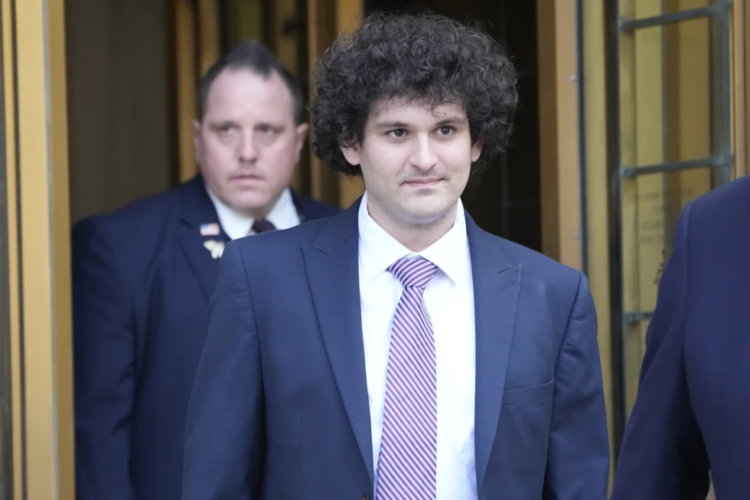FTX founder Sam Bankman-Fried’s legal team rebuked prosecutors on Tuesday, asserting that their bid to detain him before trial is unfounded, relying on “innuendo, speculation, and meager evidence.”
This written retort, presented in a federal court in Manhattan, serves as a response to the prosecution’s recent argument that no set of bail conditions can prevent the former cryptocurrency influencer from attempting to unduly influence potential jurors ahead of his trial on October 2.
Currently, Bankman-Fried, aged 31, remains at liberty under a $250 million personal recognizance bond, granted after his extradition from the Bahamas in December. He faces charges in New York for allegedly misappropriating millions of dollars from his enterprises, defrauding investors. Bankman-Fried has entered a plea of not guilty to all accusations.
During a hearing held the previous week, Judge Lewis A. Kaplan instructed legal representatives to present written assertions prior to his determination regarding whether Bankman-Fried should be incarcerated or allowed to remain under confinement at his parents’ residence in Palo Alto, California. This arrangement entails stringent restrictions on his electronic communications, subject to government oversight.
It was during this aforementioned hearing that a prosecutor caught defense attorneys off guard by requesting the revocation of their client’s bail. The request was made on the basis that the client had provided personal writings of a crucial witness, who was testifying against him, to a reporter from The New York Times. The intention behind this action was allegedly to portray the witness in a negative light and potentially sway the opinions of prospective jurors for the impending trial.
The witness in question, Caroline Ellison, formerly the CEO of Alameda Research, a cryptocurrency trading hedge fund affiliated with FTX, had a past romantic involvement with Bankman-Fried. Her association with Bankman-Fried ended prior to FTX’s collapse in November of the preceding year.
In December, Ellison admitted guilt to criminal charges that carry a substantial maximum prison term of 110 years. She has since reached an agreement to provide testimony against Bankman-Fried, which could lead to a more lenient sentence.
In their submission on Tuesday, Bankman-Fried’s legal team contended that their client’s actions were merely an effort to safeguard his reputation. They argued that his engagement with the reporter, who had gathered information from other sources for the article, was within his rights under the First Amendment. This defense posits that given the proliferation of negatively-biased articles about him, Bankman-Fried had a legitimate basis to communicate with journalists.
“The Government’s attempt to establish its assertion of Mr. Bankman-Fried’s ‘tampering’ with witnesses rests on a foundation of insinuation, conjecture, and meager factual basis,” the attorneys stated. “The presented evidence from the Government falls significantly short of the standard witnessed in cases within this jurisdiction where pretrial detention was mandated due to alleged witness tampering. This evidence does not substantiate the call for Mr. Bankman-Fried’s bail to be revoked.”
The legal team also contended that the article published by The New York Times actually portrayed Ellison in a compassionate light and potentially inflicted more harm upon Bankman-Fried. They further highlighted elements of the story that couldn’t have originated from him, asserting that the prosecution even shared some of the information referenced in the Times’ article.
In the prior week, the prosecution had argued for bail revocation, citing instances such as Bankman-Fried’s alleged attempt to influence a witness in January via an encrypted message sent through a texting app to a senior FTX attorney. The message expressed a desire to reestablish a constructive connection and collaborate as resources.
Additionally, the prosecutors expressed concern over Bankman-Fried’s extensive communication with various writers. They pointed out his participation in more than 1,000 phone calls, including over 500 with author Michael Lewis, who is crafting a book centered around Bankman-Fried titled “Going Infinite: The Rise and Fall of a New Tycoon.” Furthermore, they noted over 100 telephone conversations with the Times’ writer responsible for the piece headlined “Private Writings of Caroline Ellison, Star Witness in the FTX Case.”
As the judge contemplates the request for bail revocation, a gag order has been imposed on all involved parties.
Bankman-Fried’s legal team asserts that this gag order effectively prevents any further communication of the nature that the government raised concerns about. They also presented additional correspondences from their client to demonstrate that Bankman-Fried’s attempt to engage with the FTX lawyer stemmed from a prior message received two months earlier. The lawyers argued that their client’s intention was merely to offer his expertise in aiding the recovery of funds for investors, a consistent practice he had maintained.
Furthermore, Bankman-Fried’s attorneys emphasized that incarcerating him would severely impede his and his legal team’s ability to adequately prepare for the trial. They highlighted the necessity of accessing millions of documents, some of which are exclusively accessible online, making it unfeasible to prepare adequately behind bars.






























